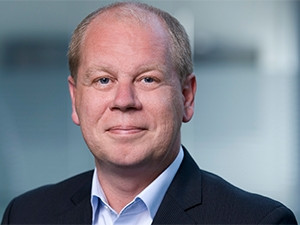
The Internet of things (IOT) market remains fragmented in EMEA, stemming from a disconnect between IT and business departments over what IOT is and how it should be used.
This is according to a new survey of 1 400 business and IT leaders from the region. The findings were presented yesterday at the Aruba Networks EMEA Atmosphere 2017 event in Paris.
The research findings show that while there is a 50% adoption rate of IOT across the region, set to rise to 82% by 2019, there is a clear lack of alignment between business and IT leadership regarding what IOT is, how it is being used, and even whether it has been adopted.
This, in turn, has created a highly fragmented landscape across EMEA, with countries reporting drastically different levels of IOT adoption, understanding of IOT, and levels of perceived security that it offers.
Aruba says IT and business departments have not yet agreed on what IOT is. Nearly two-thirds (65%) of IT leaders define IOT as "adding Internet connectivity to everyday objects" while nearly half (48%) of business leaders give IOT a rather contrasting term: "automation of building services".
According to IT leaders, the number one use case for IOT, now and in the future, is monitoring and maintenance of critical equipment. For business leaders, the preferred use of IOT is to provide location-based services.
The networking company says there even appears to be disagreement over whether IOT is being used.
Nearly six in 10 (58%) business leaders believe they have adopted IOT technology in their organisation, compared to under half (47%) of IT decision-makers.
It adds that European IT departments have greater hesitancy to deploy IOT. When asked about adoption rates, 13% of IT leaders say they have "no plans" to deploy IOT. Conversely, 93% of business leaders declared they have, or will be adopting, IOT technology.
However, businesses and IT leaders in EMEA are feeling optimistic as they look for business outcomes that include improved workforce productivity, reduced operational risk, greater efficiency and better value when buying IOT services, Aruba notes.
"It's clear that there are conflicting views within departments on IOT, but with IOT adoption moving at an unprecedented rate and the business reporting clear business value from IOT, it is essential that there is an open dialogue around IOT to ensure cohesion on IOT adoption," said Morten Illum, VP of EMEA at Aruba, commenting on the findings.
"Conflicting priorities could mean disruption in its success within the organisation. The use of IOT across European and Middle Eastern regions is currently in a state of flux, with countries showing vastly different levels of understanding, adoption and preparedness for IOT."
Illum believes EMEA has a huge opportunity with IOT. "With executives across the region already reporting significant business benefits, such as enhanced customer experiences and better innovation, those who are able to successfully align and connect internal structures to implement IOT are well positioned to gain a competitive advantage."
Share